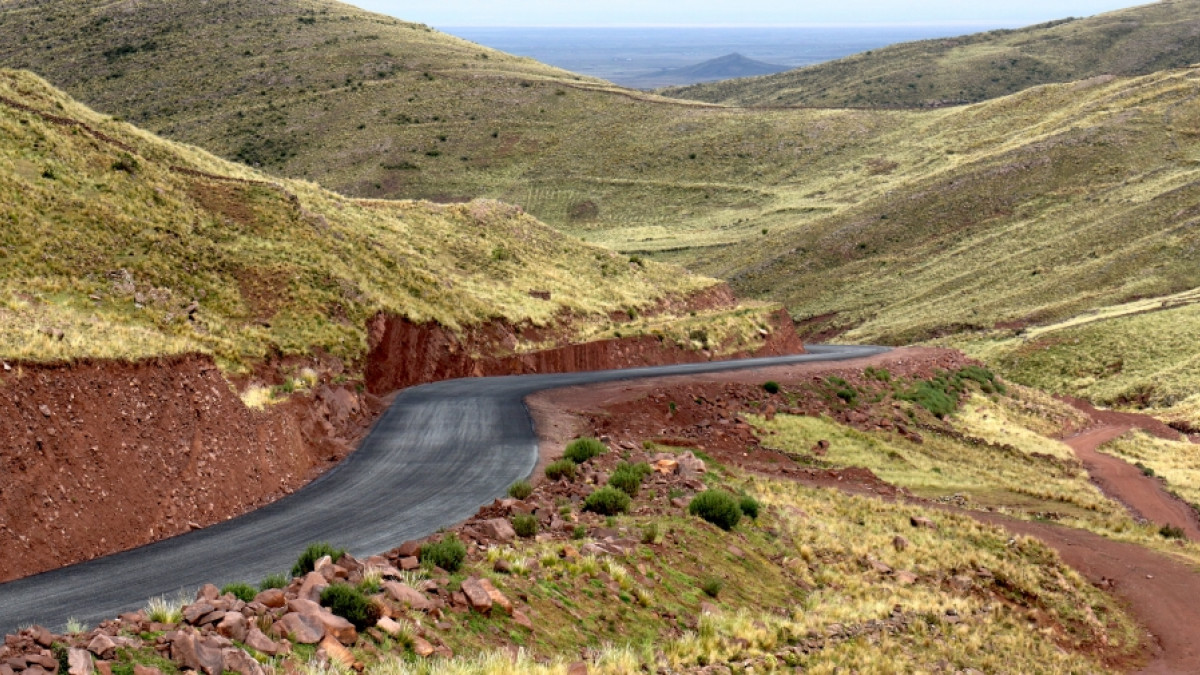Faced with Global Slowdown, We Shall Continue Investing in Infrastructure
A few days ago, I have signed in Uruguay, on behalf of FONPLATA, the commitment of the Institution to fund the improvement of Montevideo’s port access road, Rambla Portuaria, by improving the road and railway access to Uruguay’s main connecting hub to the rest of the world. This project is just an example of the works we must continue carrying out in the region in the next years, regardless of occasional economic conditions.
If we look at the projections of major international financial agencies for this year, the good news is that Latin-American economies, in general, and most of the economies of our member countries (Bolivia, Brazil, Paraguay, and Uruguay), specifically, will continue to grow. The bad news is that we are entering a global slowdown period.
Argentina deserves a special mention, faced with a difficult economic scenery today, but that seems encouraging in the medium term. A 1.7% contraction is expected for this year, however, as from 2020 a yearly expansion of 2%-3% is expected to take place.
Despite the apparently favorable context for these countries, at least for the next three years, it is prudent to get prepared to cope with the effects of this global slowdown that, without any doubt, will also hit this side of the world. It is foreseeable that we will export less and that access conditions to funding will be harder than in previous years.
Besides, we cannot forget the vulnerability of our region to natural hazards, which are more and more recurrent and extreme due to climate change, global warming, and their devastating impact on nature, people and infrastructure.
So, the outlook for Argentina, Bolivia, Brazil, Paraguay, and Uruguay in the period 2019-2021 is of moderate growth (between 2% and 4%), as forecasted by the World Bank and the International Monetary Fund, within the global slowdown that includes a decrease in exports and harder access conditions to funding, while facing the demand of offering effective solutions to climate risks.
All this, without overlooking social investment in a region that, even if it has undergone important improvements in the last decade, the pace of poverty reduction, especially of extreme poverty, tends to slow down.
Therefore, it is highly important for these countries to continue investing in infrastructure.
Investments in infrastructure, with a clear governance and an efficient management of resources, enhance the development conditions for industry and trade, encourage investments, and create opportunities for all members of society.
Also, if those investments are made bearing in mind the reduction and mitigation of the effects of climate change, they will last in the long term, so that they will be paid off and their benefits will be maximized.
In the current conditions, the best option for all five countries is to continue investing in this area and thus contribute to overcome the huge infrastructure gaps, especially in areas like transportation, electricity, logistics, and trade.
This effort has been made for some time and, in the last years, it has had the support of the Institution I chair. FONPLATA has offered our member countries the possibility of having access to funding in more favorable conditions than those of the market, and we are committed to continue doing so. Without any doubt, this is one of our main advantages in a context in which money is becoming more expensive to countries.
Our work proves that with large road works in Paraguay and Uruguay, significant urban development projects in medium-sized cities in Brazil, support to the recovery of urban infrastructure in Bolivia, and major works to develop inland waterway ports in Argentina, among several projects that are carried out aiming at the integration of these nations, and the development of their less-favored areas.
Our commitment goes beyond the strictly financial sphere, helping our partners to cope with the challenges that climate change represents to their infrastructure and development.
It is within that framework that we have signed cooperation agreements with the French Development Agency and the European Investment Bank for the sustainable development of our member countries and, especially, for countering the effects of climate change in Bolivia, Brazil, and Argentina. We aim at extending this alliance to the KfW (Kreditanstalt für Wiederaufbau).
All in all, we aim at enabling these five countries to continue having a future with development and environmental sustainability, always considering the urgent needs of the less-favored people. We, at FONPLATA and in association with other international development agencies, will continue working to make that happen.
Text published in Juan E. Notaro’s monthly column in the Huffington Post.

